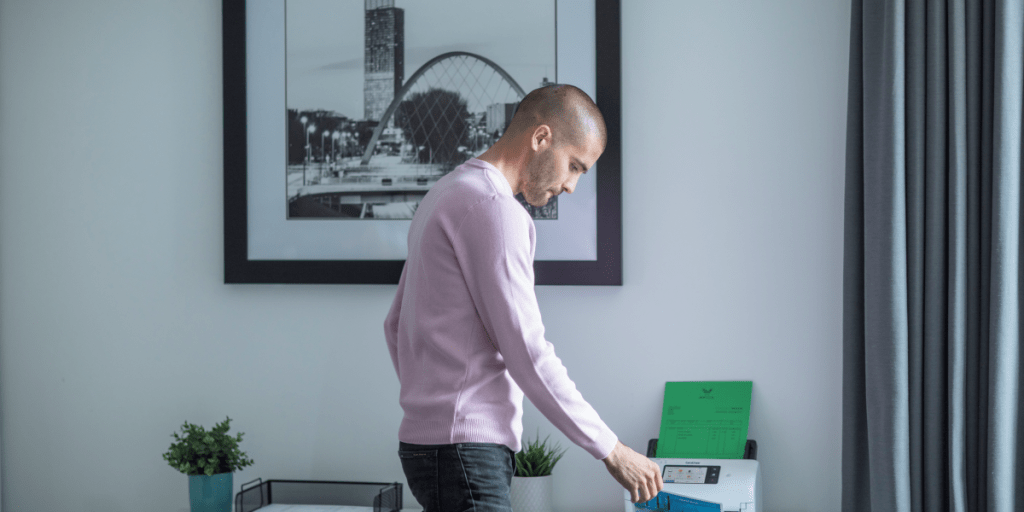Home office expenses: What you need to know

For many Australians, the home office has become the workplace with much of the nation working remotely or hybrid at least part-time.
In fact, according to Brother’s own research, more than two-thirds of Australians (68%) say they actually prefer to work from home.*
However, unless you are one of the 16% of Australian hybrid workers who had all of their tools provided by their employer*, you’ve likely had to source or purchase some of your tools yourself.
This is where home office rates or home office expenses come into play. Being able to identify which of your tools and resources in your home office are tax-deductible is extremely important for both employees and business owners.
Whether it’s claiming running costs or tools such as your compact printer, here’s our guide to home office rates.
Tax deductibility of a home office space
Firstly, it’s key to understand if you’re eligible to claim a deduction for WFH expenses. As employees, the best-case scenario is if you work from home and have a space set aside specifically for work activities.
If you’re in this category, you may be able to claim both occupancy and running expenses.
However, if you work somewhere else, like an office, but also work at home on occasion, you can’t claim occupancy expenses irrespective of whether you do have a home office space set up.
Checking your eligibility through the Australian Taxation Office is a crucial step here that can’t be underestimated.

What is tax deductible in a home office space?
If you are eligible, there are a host of expenses you can go on to claim. These include occupancy expenses like rent, or perhaps even your mortgage repayments. There are also running costs to consider, such as heating, cooling, lighting, internet connection and your phone bill.
Of course, hardware such as your desk, computer, mobile phone as well as stationery are all eligible, so long as they are used as a work expense. It’s for this reason that businesses often prioritise buying new equipment at EOFY as on top of retailers providing deals, the equipment can quickly be claimed.
Keeping a record of all business expenses is imperative. Devices such as those in Brother’s ADS-4 Scanner range can assist here to quickly and easily copy and digitise files for organisation, or to share with your accountant.

How much can you deduct?
Determining how much you can deduct is where things become slightly difficult as the Australian Tax Office provides three approaches. However, all require you to keep records.
As a summary of each:
- The fixed-rate method refers to the amount per work hour for additional running expenses, plus expenses not covered by the fixed rate
- The actual cost method is the actual expenses you incur as a result of working from home
- The shortcut method is an all-inclusive rate per work hour. However, this is only available from 1 March 2020 to 30 June 2022
What’s best for you will depend on your circumstances and is worth researching.
The key take-out is to remember that there is no maximum to your claim – so long as you’re not breaking any rules and you have the necessary evidence to back up your claim.
Home-based businesses vs employees WFH
If you’re a small business operating from home there are many business-based deductions you can claim. However, there are fewer for employees and it pays to understand the differences.
For instance, employees can’t claim general household items like coffee, tea, milk and snacks. Other common erroneously claimed items are things your employer may already provide. For example, a mobile phone or laptop, as well as any items or expenses that are reimbursed by your employer.
As always, getting tax time right depends on personal circumstances. But, for many Aussies working from home, considering office deductions can be an easy way to boost your return.
For advice on what tools to invest in for the next financial year, be sure to read our article here.
*Research conducted in May 2022 by Pureprofile on behalf of Brother Australia, on a sample of over 1000 working Australians.

Resource Library
Be the first to receive exclusive offers and the latest news on our products and services directly in your inbox



.jpg?h=720&iar=0&w=1920&rev=36358aeeea934b07bce65a5d230d3519)
